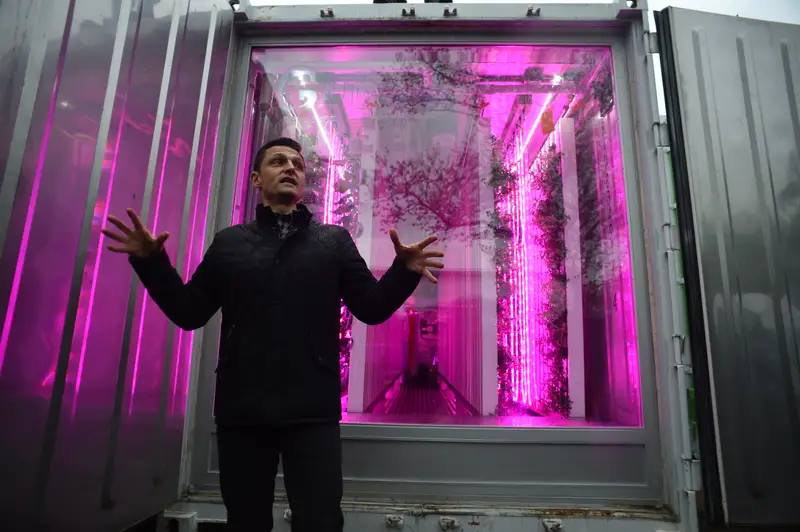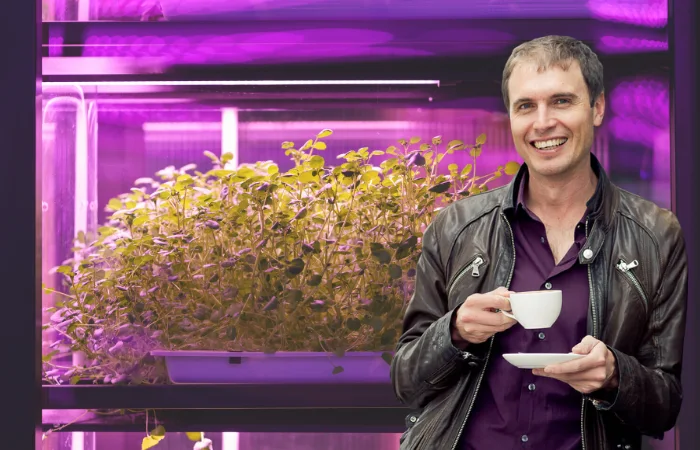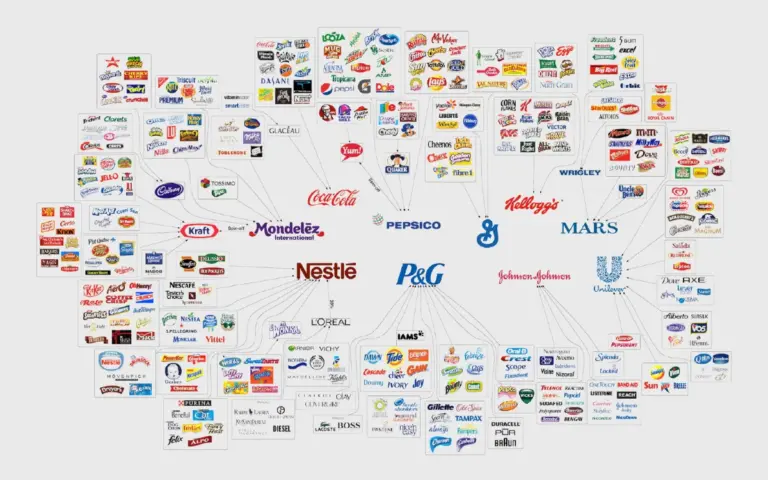Square Roots, a ‘smart farm’ startup that was cofounded by Elon Musk’s brother, Kimbal, shut down the majority of its remaining locations on Tuesday and laid off most of its staff.
The vertical farming startup was founded in 2016 and quickly grew to five locations, announcing a partnership with Gordon Food Service in 2019.
Square Roots grows herbs and salad greens using shipping containers and artificial light and aims to localize food sources, making farming a year-round process.
The “smart farm” company had over $90 million in total funding as of April 2022, and some of its backers include close friends of Elon Musk, including David Sack’s Craft Ventures, according to Pitchbook.
This move marks a significant shift for Square Roots, which had initially surged onto the scene in 2016 and rapidly expanded to operate in five different locations, partially due to the publicity surrounding co-founder Kimbal’s famous last name.
According to Kimbal Musk, at the time, the ‘smart-farm’ would revolutionize farming and create localized year-round food sources. The company had no difficulties garnering attention and investment.

About Kimbal Musk
Kimbal Musk's net worth is estimated to be $600 and $700 million primarly from his shares of Tesla. Kimbal also sits on the boards of brother, Elon Musks, main holdings, Tesla and SpaceX.
The decision to scale back operations was conveyed to employees during a Zoom call led by Square Roots CEO, and co-founder, Tobias Peggs.
It was disclosed that the startup would cease production at several key locations, including those in Springfield, Ohio; Shepherdsville, Kentucky; and Kenosha, Wisconsin.
Reports from various sources indicated that these locations would be affected by the shutdowns, with plans to reorient the company’s strategy.
For instance, one former employee from the Grand Rapids location shared that one of the two farms on-site had already been shuttered. The remaining farm would reportedly support Square Roots’ new business approach.
Unfortunately, this shift has led to a significant reduction in the workforce. At the Grand Rapids location alone, which previously employed over two dozen staff members, nearly all but 10 workers were let go. Meanwhile, all on-site employees at the other locations faced termination.
This development marks a challenging moment for Square Roots, a startup that had initially captured attention with its ambitious mission of bringing tech-driven innovation to agriculture.
As the industry grapples with the complexities of food security and sustainability, Square Roots’ transformation sheds light on the evolving landscape of tech-based solutions in farming and the hurdles they must navigate.
The exact scope of the layoffs remains unknown, but the company was believed to have employed around 198 individuals as of June, based on data from PitchBook.
For many of the affected employees, the layoffs didn’t just seem temporary.
The abruptness of the decision left a lingering uncertainty.
“It was framed as a temporary thing, but the layoffs didn’t feel temporary,” shared a former employee from the Grand Rapids site. The absence of any assurance of job reinstatement added to the unease. “It wasn’t like they were saying ‘You guys will be offered your jobs back’ at any point,” they added.
Square Roots had already made waves earlier this year when it closed down its original farm located in Brooklyn.

This move resulted in the layoff of approximately 50 personnel, as detailed in a press release issued in January.
The recent wave of layoffs came as a shock to the staff.
The timing was particularly unexpected, considering that the company had recently inaugurated its largest facility in Kenosha, Wisconsin, in August.
The Shepherdsville location, on the other hand, had been operational for just under three months.
The day of the announcement was seemingly ordinary for the workers, until they received an abrupt call to attention.
“We were in the middle of production and everyone received an email and Slack saying essentially ‘Drop everything and attend this Zoom call,'” recounted a former employee from the Grand Rapids site.
The suddenness of the announcement and the lack of context left everyone stunned.
A spokesperson from Gordon Food Service redirected inquiries to Square Roots.
However, the startup did not respond to multiple requests for comments.
During the Zoom call, Square Roots CEO Tobias Peggs informed the employees of a shift in the company’s strategic focus.
The decision entailed moving away from packaging their own products and concentrating more on aiding business partners, including Gordon Food Services.
This change in direction left many employees in shock, and angry.
In the local news, Square Roots expressed that it was pivoting its business model toward “farming as a service.”
More To Discover
- The Chia-Chair: Redefining Furniture as Living Ecosystems
- How Solar and Battery Storage Advances Are Powering Change in Africa and 2024 Will Be Even Better
- 2023 Saw 356,000 Heat Pumps Installed In Germany: 50% Surge in Installations for Second Year Running
- Hyped Tech-Driven Solutions to Climate Change Are Falling Short
According to the company’s statement, “We’re now operating our controlled climate farms exclusively for our strategic partners — whether that’s to immediately secure the supply of high quality crops, or to explore novel ways of profitably growing high-calorie food indoors.”
The statement also acknowledged that the transition necessitated the suspension of commercial production in certain facilities while they were reconfigured to better fit the new “Farming as a Service” model.
In the aftermath of the Zoom call, the employees were informed of their fate via email. For some, the shock extended beyond the Zoom call. A former Grand Rapids employee explained how they were abruptly locked out of their work email, only to find out later that they had been laid off.
The impact of these layoffs has been deeply felt. “It was quite abrupt and has been very devastating to this wonderful team of people,” said the former Grand Rapids employee. The sudden changes have left many feeling like they’re starting from square one.
As one employee put it, “There’s not a lot of hydroponic startups in Michigan these days, so it’s tough on everybody.”




















